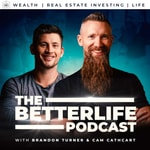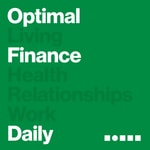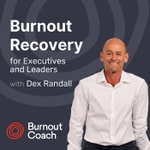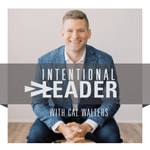Deliberate Freelancer – Details, episodes & analysis
Podcast details
Technical and general information from the podcast's RSS feed.

Deliberate Freelancer
Melanie Padgett Powers
Frequency: 1 episode/10d. Total Eps: 224

Recent rankings
Latest chart positions across Apple Podcasts and Spotify rankings.
Apple Podcasts
🇬🇧 Great Britain - careers
16/07/2025#98🇬🇧 Great Britain - careers
20/05/2025#79🇬🇧 Great Britain - careers
01/04/2025#69🇬🇧 Great Britain - careers
30/03/2025#92🇨🇦 Canada - careers
29/03/2025#69🇫🇷 France - careers
28/03/2025#93🇨🇦 Canada - careers
13/02/2025#85🇨🇦 Canada - careers
29/12/2024#50🇨🇦 Canada - careers
13/11/2024#80🇨🇦 Canada - careers
19/10/2024#100
Spotify
No recent rankings available
Shared links between episodes and podcasts
Links found in episode descriptions and other podcasts that share them.
See all- https://pixabay.com/
2354 shares
- https://www.canva.com/
1022 shares
- https://gretchenrubin.com/podcasts/
599 shares
RSS feed quality and score
Technical evaluation of the podcast's RSS feed quality and structure.
See allScore global : 53%
Publication history
Monthly episode publishing history over the past years.
#191: It’s Summer Hiatus Time!
jeudi 6 juin 2024 • Duration 08:19
I will be on summer hiatus from June to September. This episode gives you a quick update about my summer plans and provides a sneak peek into what I’m looking forward to talking about in September.
Resources:
- Support Deliberate Freelancer at Buy Me a Coffee
- Deliberate Freelancer Facebook group
- Connect with Melanie on Threads @MelEdits_DC
- Connect with Melanie on LinkedIn
- Melanie’s other podcast, Association Station
#190: Unpack and Improve Your Money Beliefs with Austin L. Church’s Book “Free Money”
jeudi 30 mai 2024 • Duration 54:45
Today’s guest is Austin L. Church, who returns to the show to talk about his book “Free Money.”
Austin lives in Knoxville, Tennessee. He helps e-commerce founders stand out online with their brand strategy. Lately, he’s been working as a fractional chief marketing officer, consulting for creator economy companies. He also coaches freelance creatives.
Austin returned to the podcast to talk about his new book, “Free Money,” which I have read and highly recommend for all freelancers.
In this episode, we talk about:
- Who this book is for and why he wrote it.
- How our beliefs about money from childhood affect our businesses now.
- The financial numbers you need to know to run your business.
- What “pessimistic pricing” and “weirdly precise” numbers are.
- Set a price that reduces the chances you will resent the client or the project.
- The fine line between setting boundaries and being difficult to work with.
- Why the “hustle” isn’t sustainable and can lead to burnout.
- The four stages of freelancing: Moonlighter, Hustler, Lifestyler and Diversifier.
- The money mindset questions Austin asks his clients. For example, fill in the blank: Wealthy people are __________. Making money is __________.
- How to address our money beliefs and improve our financial literacy.
- Why investing in a business coach can be important to improve your business.
Resources:
- Austin’s book: “Free Money: Nine Counterintuitive Moves for Life-Changing Freelance Income”
- Support Deliberate Freelancer at Buy Me a Coffee
- Connect with Melanie on Threads @MelEdits_DC
- Connect with Melanie on LinkedIn
- Deliberate Freelancer Facebook group
#181: Successful Marketing Tactics from Deliberate Freelancer Listeners
jeudi 29 février 2024 • Duration 23:30
In today’s episode, I am turning the microphone over to some of you, the listeners. Last fall I asked listeners to share their successful marketing tactics that landed them new clients. Today, eight listeners share their marketing wins with you.
While each unique to the freelancer, there are a few themes. Often, the win originated from something simple, something that might not even have felt like marketing … and yet it paid off.
Building relationships — which I talk about all the time — is also a theme here, as are staying curious and always looking for the opportunities in front of you.
Here are the eight listeners sharing their success stories:
- Randy Ford
- Jonna Michelle
- Anja Lordanić Mustać
- Cat DiStasio
- Angela Myers
- Belinda Grace Fischer
- Nancy Keaton
- Pete Croatto
Biz Bite: Do an energy audit
The Bookshelf: “Northwoods” by Amy Pease
Resources:
Support Deliberate Freelancer at Buy Me a Coffee
Episode #180 of Deliberate Freelancer: How to Crush Your Fear of Self-Promotion and Get Clients Now, with C.J. Hayden
Connect with Melanie on Threads @MelEdits_DC
Connect with Melanie on LinkedIn
#98: Six-Figure Freelancing: The Benefits of Selling Strategy and Outcomes, with Austin Church
jeudi 6 mai 2021 • Duration 47:30
Today’s guest is Austin Church from Knoxville, Tennessee. Austin helps e-commerce founders stand out online with their brand strategy. He also coaches freelance creatives.
After Austin got laid off in spring 2009, during the U.S. recession, he became a freelance copywriter. Does Austin consider himself an agency? Not exactly. He likes to pull in other creatives as necessary, and he serves as the project manager. He calls it the “antique shop” model — bigger antique shops don’t own all the antiques; they provide the space for other dealers, sell their products and earn a commission.
When he first started freelancing, Austin wasn’t great at keeping tabs on his income and expenses, and he didn’t save for or pay his quarterly taxes. When his accountant sister fired him as a client, it was a wakeup call. The book “Profit First” by Mike Michalowicz helped Austin figure out a better way to handle his money, mainly by getting several checking accounts and allocating each one toward certain things, like quarterly taxes.
Austin is also a fan of the book “Atomic Habits” by James Clear. Clear says if you make habits obvious and easy, they’re more likely to stick. That resonated with Austin and helped him institute some better business and personal systems.
One system he highly recommends is to create email templates, especially when you’re asking clients for referrals. After a project goes well, at the end, when the client is happy, customize that referral template quickly and email it to your client.
Austin also recommends tracking every client and project lead imaginable and having a simple way to track them. Check in with that spreadsheet every week to see what leads you need to follow up on. It can take several “touches” or interactions with a potential client before you land a project, and without those multiple check-ins you could lose out on great projects and clients.
Austin says we have to put in a statistically significant number of activities. We often give up too soon. But, for example, if you are using Instagram to get clients, you need to have conversations with 100 people, not three.
Austin builds his business on selling strategy. He recognized that about 3 out of every 10 clients know exactly what they want, and he helps them with that. But most are unclear. For example, they might ask for a new website, but what they really need is an entire marketing strategy.
Austin started offering strategy, or strategic planning, which he now calls a “wayfinding workshop.” After talking with the client, he gets the sense of whether they’re lacking clarity and need strategic help. If they’re not willing to pay for that, it’s a red flag for him and isn’t a fit for him as a client.
He also sells “strategy retainers” where he meets with clients every two weeks to work on their strategy. With those packages, he’s not responsible for the implantation phase. He says most freelancers probably skew toward one or the other — they either like the strategy or the implementation. But going back and forth between the two with the same client can cause whiplash.
When Austin sees other freelancers struggling in their freelance business, their challenges often fall under one of the six 6 Ps: positioning, packaging, pricing, pipeline, psychology, process.
Biz Bites: Get a Text Expander App (atext) and Don’t Open Your Email Until 11 a.m.
Resources:
Austin’s website and his free freelance course: AustinLChurch.com
Episode #79 of Deliberate Freelancer: Six-Figure Freelancing: Consistently Sending LOIs and Using Upwork, with Laura Pennington Briggs
Episode #80 of Deliberate Freelancer: Six-Figure Freelancing: Writing B2B Tech Content, with Satta Sarmah Hightower
Episode #81 of Deliberate Freelancer: Six-Figure Freelancing: Focus on a Niche and Partner with Other Freelancers, with Lynne Testoni
Episode #82 of Deliberate Freelancer: Six-Figure Freelancing: Embracing an Entrepreneurial Mindset, with Gresham Harkless
Book “Profit First” by Mike Michalowicz
Book “Atomic Habits” by James Clear
Book “The Business of Expertise” by David C. Baker
Book “Give and Take” by Adam Grant
Book “Million Dollar Consulting” by Alan Weiss
Book “Essentialism: The Disciplined Pursuit of Less” by Greg McKeown
“The Chef Show” on Netflix
#97: How Copywriting Can Grow Your Business, with Quiana Darden
jeudi 29 avril 2021 • Duration 28:54
Today’s guest is Quiana Darden from Richmond, Virginia. She is a launch copywriter, which means she supports coaches and service providers who are launching or rebranding their high-ticket offers. She offers sales page copywriting, email marketing sequences, social media copy, landing pages and ad copy.
She started as an elementary school teacher, but later decided she wanted to home-school her daughter so she brainstormed on how she could work from home. She started as a virtual assistant and then a freelance writer focused on content marketing, but did some copywriting.
She was scared at first to jump into copywriting because there is an expectation of conversion. But a coach encouraged her to go all in. Zeroing in on her very specific niche in copywriting means she can demand higher rates.
Freelancers rely on their online presence to educate their audience about the services they provide. That means quality copywriting — a sales page, social media posts, landing pages.
Freelance writers often think they can write their own copy, but that could be a challenge. It might be difficult to write about yourself or you might have difficulty maintaining the same tone as your service (sales copy tone should match the tone of your blog, podcast, course, etc.). You may tend to write about your own services in a more stilted, robotic way. Or, writing your own copy often gets pushed at the bottom of your to-do list.
When you write copy, you shouldn’t focus solely on the products and services included in the offer. People buy the transformation, so you need to explain what they will gain by purchasing your offer.
Before you hire a copywriter, get clear on the details of the offer, the transformation it will provide, how you are different from your competitors, who your audience is and what their pain points are.
As you decide which project to outsource to a copywriter first, think about what has been on your to-do list for a while but also what is going to give you the most “bang for your buck.” That may mean an email marketing campaign to grow your email list. Or, maybe you need a new sales page because your current one isn’t converting into that many sales.
I also talked to Quiana about her business and her clients. She talks about demanding higher rates after thinking about the value she provides clients and the money they can earn based on her strong copywriting.
Quiana only offers one primary service right now. It’s a Launch Copy VIP Day package — with a turnaround time of 48 hours — and the price is listed on her website. She knows exactly how many of those she needs each month. And the quick turnaround time gives her the flexibility she needs to home-school her daughter.
Quiana shifted to this approach because she was tired of creating custom writing packages for every single client.
When she was a content marketing writer, Quiana found a lot of clients through cold emails or LinkedIn connections and through Facebook groups with business owners. She answered content marketing questions there, which showed she was an expert, and people reached out to hire her.
Now, she is finding her clients through Instagram, after her coach recommended that platform based on Quiana’s audience. Doing weekly live video on Instagram has helped increase her audience. She uses videos to answer common questions her audience asks and also shares her process as a copywriter working with her clients.
Biz Bite: Find Your Power Hours (the time you work best)
Resources:
Subscribe to the new Deliberate Freelancer newsletter at MelEdits.com/newsletter.
Please record a voice memo on your phone about your time tracking lessons and experiences. Email it to [email protected] for a future podcast episode.
Quiana’s website: The Write Choice
Episode 56 of Deliberate Freelancer: How to Use Instagram to Grow Your Business, with Jessica Thiefels
REPLAY #22: How to Create a Better Work-Life Balance, with Laura Poole
jeudi 22 avril 2021 • Duration 41:31
This is a rerelease of episode #22 from August 2019. I am rereleasing this as I catch up on all my work right now, which is ironic considering the name of this episode. Laura Poole offers great advice that we might all need right now about creating a work-life balance that is right for you. But beyond that, Laura is peppy and fun, so I think you’ll enjoy hearing from her.
Laura is a a freelance editor from Durham, N.C., who has been a freelancer for about 24 years, almost her entire career. She provides copyediting for scholarly nonfiction publishers and training for editors and freelancers. She is also a trained, certified life coach.
Biz Bite: Take a few moments of peaceful clarity and think about what you want more of in your life. What do you need to change to make that happen?
Resources:
Laura’s book: “Juggling on a High Wire: The Art of Work-Life Balance When You’re Self-Employed”
#96: Improve Productivity: Stop Letting Email Rule Your Day
jeudi 15 avril 2021 • Duration 30:15
On today’s show, I introduce you to Cal Newport’s new book, “A World Without Email: Reimagining Work in an Age of Communication Overload.”
First, I talk about his concept of the “hyperactive hive mind” and the problem with email and instant messaging tools like Slack. Then, I talk about his solution briefly. And then I share my own thoughts and tips for getting your email under control, as well as how to reduce the amount of email you get.
Newport points out that our current office environment was not planned so much as it just happened to all of us when email became commonplace. He calls the current workflow of many corporate offices the “hyperactive hive mind.” Freelancers can often push back at this, but we are a part of it because our clients are a part of it.
The constant need to respond to email prevents many of us from doing our actual work—cognitive work, which Newport calls “deep work.” Instead, many of us are constantly task-switching throughout the day. But our brains are not meant to task-switch. Try it—can you think of two separate things at exactly the same time? Nope.
First, I recommend you consider how you can set tougher “I’m checking email now” rules for yourself. How can you stop checking it so often?
Newport argues that tricks to help manage our email systems and clean up our email boxes are all just Band-aids on the problem of the hyperactive hive mind that our workforce lives in. I understand, but currently we are in that hive too, so we should figure out a better email solution.
Newport’s solution to this hive mind is to set up processes and project management systems instead, such as Microsoft Teams, Sharepoint, Asana, Basecamp, Trello and more. I love processes and project management tools and use them for several projects. But, these aren’t perfect. Email may simply be replaced by the chat function in Microsoft Teams, for example.
Newport talks about examining all your emails in one day. Take a look at all those emails going out and coming in and ask yourself what systems you could put in place to eliminate some of those emails. Are there processes that you could establish that would decrease or eliminate the need for some of those emails? I think this is a good practice and good place to start.
By creating checklists, forms, processes and systems, you can decrease your work time, improve your file keeping and reduce the risk of errors.
In addition, despite what Newport says, let’s figure out ways to better manage our email. First, analyze your email inbox. Does it stress you out? What don’t you like about it? What do you want to fix? Make a list of what you wish your email work life looked like.
Here are some potential solutions:
Stop aiming for inbox zero. Instead, pick a realistic number. Then, use folders to sort your emails. I have a folder for each client and then subfolders for each project. When I’ve dealt with the email in my inbox I immediately move it to the correct folder, primarily as an archive.
Delete hundreds or thousands of emails, even the old unopened ones. Are you really going to get to those? In Gmail, it is possible to do batch deletions, including by entire years.
Next, take the time to actually unsubscribe from newsletters. Don’t just delete them. If you don’t have time right now to unsubscribe, create an unsubscribe folder and move those email newsletters into that folder. Then, when you get some admin time, go through and unsubscribe one by one. Or, let your virtual assistant into your email system and have them do it for you.
You may want to create new folders that allow you to prioritize tasks, such as: Action needed today, Action needed this week, Action needed before the end of the month. The key, of course, is that you will go through those folders and reply. But, this makes it more manageable.
Gmail also now has a Snooze feature. If you see an email and know you have to deal with it that day or that week, but you don’t have the time right at that second, you can hit the Snooze feature. That way, it’ll pop up as a new email at the time of your choosing so that it won’t get lost in your inbox.
Use the Boomerang tool to schedule email replies during work hours.
Biz Bite: Move the beans over
The Bookshelf: “Sea Wife” by Amity Gaige
Resources:
Subscribe to the new Deliberate Freelancer newsletter at MelEdits.com/newsletter.
Please record a voice memo on your phone about your time tracking lessons and experiences. Email it to [email protected] for a future podcast episode.
Episode #94 of Deliberate Freelancer: My Time Tracking Audit for Q1—I Need a Better Schedule
Cal Newport’s new book, “A World Without Email: Reimagining Work in an Age of Communication Overload.”
Easy Ways to Delete Multiple Messages in Gmail
Snooze Gmail emails until later
Create rules to filter your emails
#95: How to Dream Bigger and Transform Your Freelance Business, with Cathy Wilkes
jeudi 8 avril 2021 • Duration 42:50
Today’s guest is Cathy Wilkes, who coaches people through a transformation, helping them figure out what their true dreams and goals are and how to jump-start that transformation.
Previously, Cathy built and led high-performing sales teams in the financial services industry. She used her philosophy of building people up, and helping them find their greatness, to create a better sales team.
Even if you love your freelance business and where you are today, there are still so many good lessons in this episode about mindset, whether our thoughts are holding us back from trying new things — or, whether we’re letting other people’s beliefs and comments about us hold us back.
Cathy says, “I believe there are seeds of greatness in every human being. … When we look at ourselves in the mirror, most of the time we look at our faults. We look at what’s wrong. We’re talking negative. We’re thinking what could happen. We’re sitting in fear, doubt and worry.”
Worry is just a misuse of the imagination. We could easily use that imagination to create something wonderful in our lives.
Cathy sees several things that hold people back in their careers and businesses. One of those is when we ignore our internal wisdom and we consider other people’s opinions about us more important than our internal voice and where we want to go.
Melanie shares that oftentimes it’s more her internal voice pointing out all the barriers to her big idea that keeps her from doing it. Cathy says she thinks often of “paradigms,” which she defines as “mental programs stored in the subconscious mind.” They can work for us or against us, such as thinking patterns that shut us down.
Creatives in particular may be comparing our inside to somebody’s outside, comparing our thoughts and ideas with the success we see someone having — but those are the great qualities that they choose to present to the world and may be only of the final product they created. We don’t see all the work and struggle that went into it. But, we shut ourselves down before ever trying something similar.
Cathy points out that thoughts create feelings, feelings create actions, and actions create results. But it starts with how we think about ourselves.
What if you asked yourself, “What if I could …?” You would likely start to get excited about something, but then your pattern of thinking would start to think of all the barriers and shift to the negative: “But, how are you going to do that?”
Cathy uses the word “transformation,” rather than “change.” She uses a structured step-by-step process with clients to help them transform, which involves leaving behind what is not working for them and gaining new skills and new ways of thinking that will serve where they want to go.
Cathy talks about the difference between self-image — how we see ourselves — versus self-esteem — how we feel about ourselves. Self-image should be primary, and self-esteem, secondary. So, think about where you want to end up and what you want your life and/or business to look like, not “but how am I going to accomplish that?”
Think about the end, rather than the means. The end will draw you to that place. Take a step forward today.
Cathy breaks down goals into three levels: an A goal is something you know how to do; a B goal is something where you know how to get the resources to achieve it; and a C goal is something you would love but have no idea how to do right now. Are you setting C goals?
In your business and in your life, ask yourself: What would I love? Or answer “Wouldn’t it be great if …”
Life is risk. To make a leap in a new direction, you need to choose a different set of risks. Not taking a risk is a risk itself. Taking a risk is exploring your own potential.
Cathy reserves an hour every morning just to think about her business. She takes time to imagine and “live in possibility.”
Cathy grew up thinking failure is bad. But she taught her sons the opposite: Seek failure. Try new things. Fail often.
Failure gives us more freedom to try new things. And what did we learn from that failure?
Cathy and I talk about one of my favorite business topics: mindset. She says the first step is knowing what your mindset is. How do you think about your business? Are they positive or negative thoughts?
Biz Bite: Challenge the conventional approach.
Resources:
Cathy’s Facebook group: Amplified Living NOW — Blueprint for a full throttle life
Episode #3 of Deliberate Freelancer: Host a Solo Business Retreat
#94: My Time Tracking Audit for Q1—I Need a Better Schedule
jeudi 1 avril 2021 • Duration 25:19
On today’s show, I’m doing an audit of my time tracking for the first quarter of the year. I used to do time tracking using pen and paper, mostly to keep me on task. That worked, but it didn’t allow me to easily track and analyze my data to improve areas of my freelance business.
I now use the Toggl app to track all of my work time. Today, I will talk about what I learned from time tracking the first quarter of 2021.
Time tracking and analyzing that data can help you figure out whether you’re pricing projects accurately and whether you should delegate or outsource parts of a project. If you track your time for a certain type of project, it can help you create a more accurate project rate for a similar type of project in the future. It can show me whether you underpriced a client and need to increase your rates for them the next time.
I worked, on average, 23 hours each week of 2021 so far, over about 4 ½ days a week. I’m definitely sitting at my desk more because I did not track my break time or social media time, which I plan to track in the second quarter.
That doesn’t sound like I work a lot, which is partly my goal. But I also struggle with the idea that I could do so much more, that I could make more money, that I could expand this podcast or other side projects.
Even though I’m a morning person and don’t do deep work in the afternoon, I also get really tired in the afternoon. I am not sleeping great and could possibly be dehydrated, so I’m going to work on those two things.
Plus, I would like to have a more regular schedule and have a bit more structure to my day.
Here’s what I want to do in quarter two to have a healthier day, feel less tired and create more of a structure:
Track my social media time.
Set a timer for 7 p.m. to remind me not to snack after that.
Set my light alarm for 6 a.m. and take advantage of my morning peak productivity time and energy.
Use a water reminder app to make sure I’m staying hydrated.
As for my client work, I learned a few good lessons from time tracking the first quarter. But, the results were mostly good news, confirming that I am charging appropriately. Listen to the episode for detailed information on a few projects, what I charged and what that earned me per hour of work.
Have you tried time tracking? If so, have you analyzed the data, which then helped you improve your business? I’d love to hear what lessons you have. I’d love to feature several of you on a future episode of Deliberate Freelancer! Email me at [email protected].
Biz Bite: Find an expert.
The Bookshelf: “Writers & Lovers” by Lily King
Resources:
Subscribe to the new Deliberate Freelancer newsletter at MelEdits.com/newsletter.
Episode #5 of Deliberate Freelancer: Track Your Time for Better Efficiency
Episode #91 of Deliberate Freelancer: All Things Pricing: Project Rates, Day Rates, Retainers and More, with Jennifer Duann Fultz
From the Front Porch podcast—episode 11, Literary Therapy, Volume 6, mentions “Find an Expert”
Kendra Adachi and The Lazy Genius Way
#93: Renew Your Business Now for Post-Pandemic Life
jeudi 25 mars 2021 • Duration 32:05
On today’s show, I want to talk about something super positive: post-pandemic life! Let’s look ahead and see where we want our business to be once lockdown is over.
Most of us were affected in our business lives in some way when the pandemic hit last year. We lost clients, or had to suddenly work from home 100% of the time, or had to rethink and change client projects. In-person everything was canceled.
Many of us worked hard last year, working long hours, to try to find new work. And when we did, some of us had a scarcity mindset and that “must work all the time” mentality because we weren’t sure if the projects and clients would keep coming. That was completely understandable last year, but we all know it’s not the way to run a business long term. So, if you haven’t recovered from that mentality yet, I am here to be your cheerleader—and guide—to help you think about how to refresh and renew your business as we head out of full lockdown.
Here are six questions I encourage you to ask yourself.
They revolve around what your business looks like right now versus what it looked like before the pandemic and what you want it to look like post-pandemic.
- Do you like your current clients?
2: Do you like what you are doing?
Evaluate the services you offer and whether you want to change those up.
- What will you do if the clients you lost come back to you in some form?
Don’t feel obligated to work with those past clients if you don’t want to. You can say no. But even if you love them, take the time to check in with yourself and see if you need to change anything about the relationship first.
4: What would allow you to be pickier?
Oftentimes, the answer is money. So, how can you make more money in less time? Would this involve creating a passive income stream?
5: Do you need to slow down work and take care of yourself?
There will definitely be some aspects of our lives that will change soon. We should make time to decide how to treat ourselves and what we want this new life to look like.
Consider creating a Power Hour After list. A power hour is where you take time to blast through that annoying to-do list of chores and errands that you’ve been putting off. Well, there were a lot of things couldn’t be done during the pandemic. So, make a list now of all the things you need to get done, like doctor’s appointments, dry cleaning and dropping off donations.
And then, think of all the fun things you want to do too! (Bookstores, libraries, sporting events, family visits!)
Planning for these things now, while asking yourself these big questions and bettering your business, can lead to more financial freedom and hours in the day. Then, you can spend time with your loved ones and do the things you have missed so much this year.
6: Do you need to plan a new marketing strategy?
Reevaluate your marketing and networking. Did you do some marketing efforts last year that really worked? Will they work post-pandemic? Or, are there new things you need to try to find more and/or better clients?
And think about in-person opportunities and how to prepare for those—maybe you need to create a better social media strategy, revamp your website or perfect your new elevator pitch.
So, to recap, what does your ideal business look like post lockdown? And how can you start planning now to make that happen?
Biz Bite: Simplify your kitchen time.
The Bookshelf: “The Sun Down Motel” by Simone St. James
Resources:
Subscribe to the new Deliberate Freelancer newsletter at MelEdits.com/newsletter.
Jennifer Goforth Gregory’s poll results: “Why the majority of writers in the FCMW Facebook Group made more in 2020 than 2019”
Episode #11 of Deliberate Freelancer: How to Find the Right Anchor Clients
Episode #63 of Deliberate Freelancer: How I Got a PPP Loan as a Sole Proprietor talks about the Biz Bite “Create a Power Hour After List”









